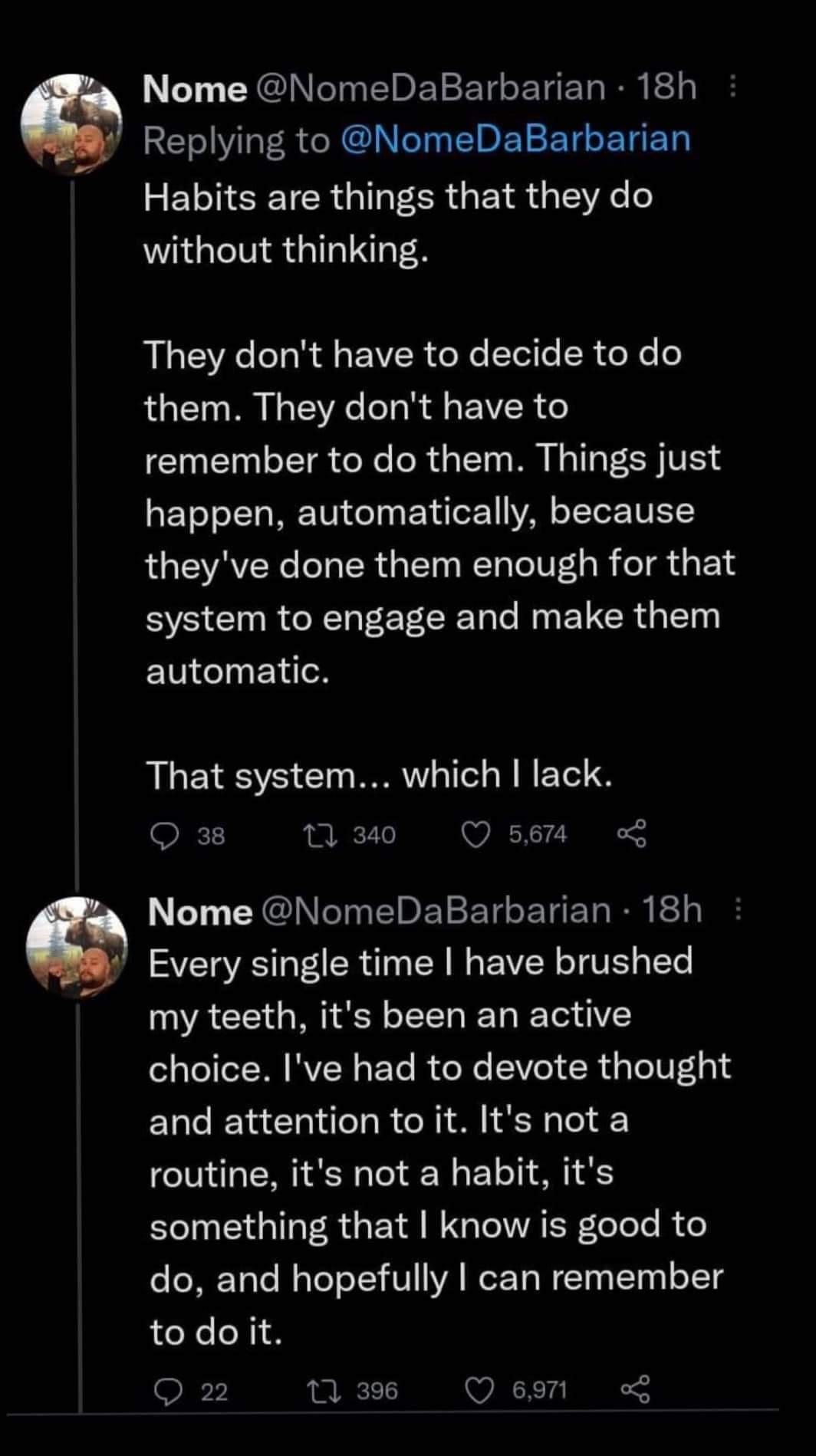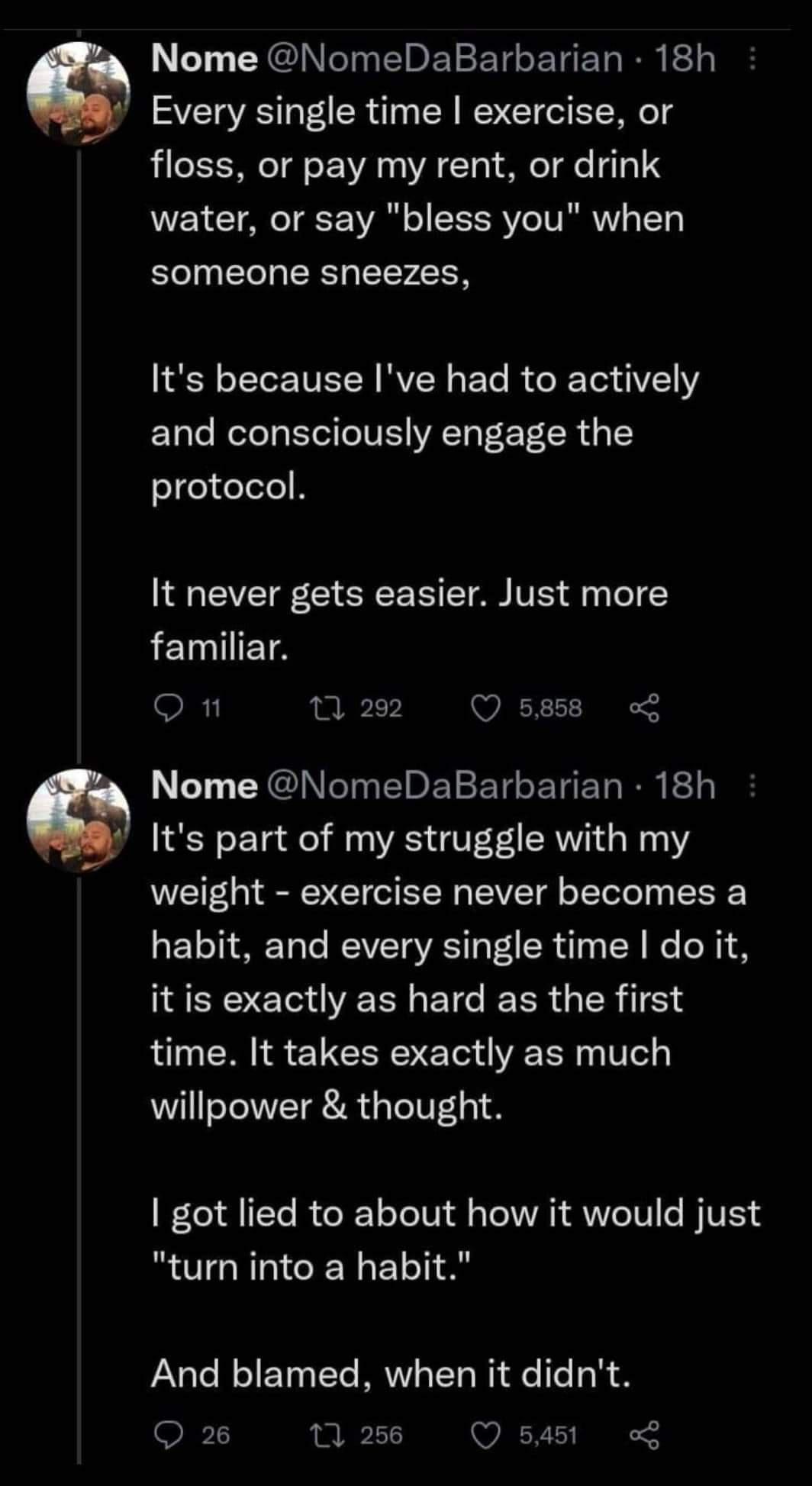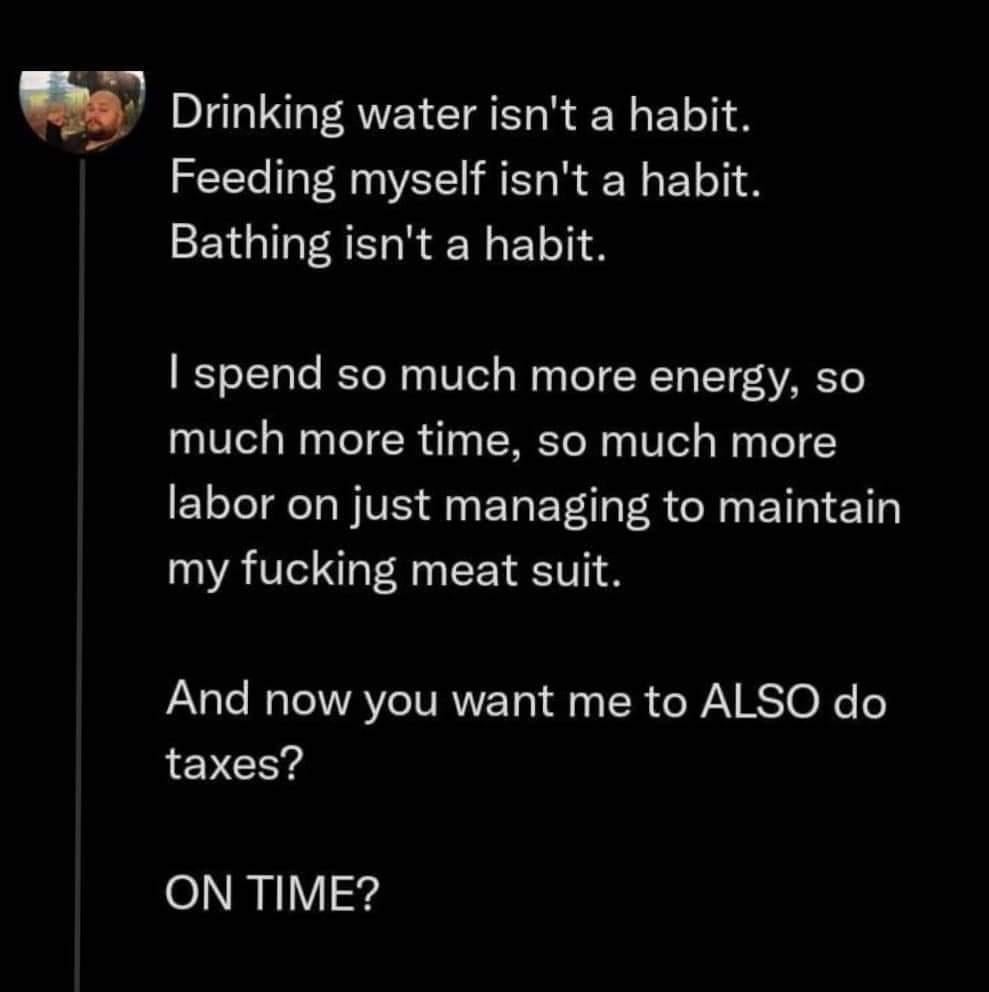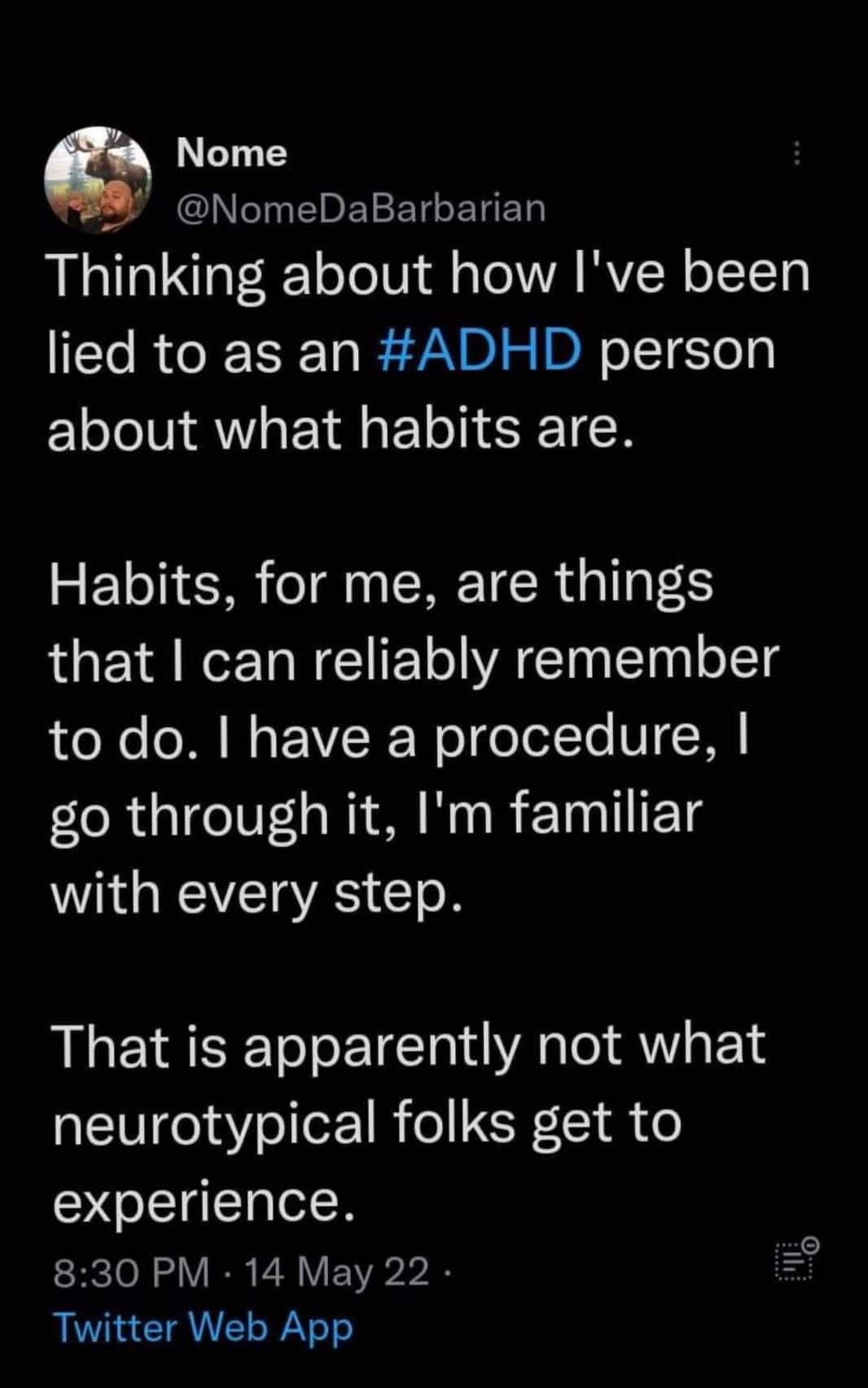this post was submitted on 16 Jul 2023
573 points (87.8% liked)
ADHD
9645 readers
105 users here now
A casual community for people with ADHD
Values:
Acceptance, Openness, Understanding, Equality, Reciprocity.
Rules:
- No abusive, derogatory, or offensive post/comments.
- No porn, gore, spam, or advertisements allowed.
- Do not request for donations.
- Do not link to other social media or paywalled content.
- Do not gatekeep or diagnose.
- Mark NSFW content accordingly.
- No racism, homophobia, sexism, ableism, or ageism.
- Respectful venting, including dealing with oppressive neurotypical culture, is okay.
- Discussing other neurological problems like autism, anxiety, ptsd, and brain injury are allowed.
- Discussions regarding medication are allowed as long as you are describing your own situation and not telling others what to do (only qualified medical practitioners can prescribe medication).
Encouraged:
- Funny memes.
- Welcoming and accepting attitudes.
- Questions on confusing situations.
- Seeking and sharing support.
- Engagement in our values.
Relevant Lemmy communities:
lemmy.world/c/adhd will happily promote other ND communities as long as said communities demonstrate that they share our values.
founded 1 year ago
MODERATORS
you are viewing a single comment's thread
view the rest of the comments
view the rest of the comments




As an autistic person, habits are integral to my existence. I hate it when my schedule gets crazy, unless I very specifically plan for it. However, my husband who has ADHD, the above seems true. As a simple example: I always leave my stuff like keys, lunchbox, and headphones in the exact same spot when I get home from work. On the other hand, I spent 10 minutes this morning trying to find where my husband put the potato chips that I was planning on taking for lunch. Instead of being in the kitchen, they were in the living room(??!!) cos he moved them there to "get them out of the way."
I'm very structured in the way I work; he needs to be constantly redirected to stay on task. I have boundless attention to fiddly, very specific high-attention things (I do a lot of fiber crafts such as knitting and crocheting lace) for HOURS, to quote Neal Stephenson, "I have attention surplus disorder." He can't work on anything longer than 15 minutes.
It used to drive me crazy, but now I've realized that's just how his brain works, and we just work around it. On the other hand, he keeps makes me take breaks and pace myself (which I don't usually do), and I help him be more efficient. It's a pretty good system.
I'm AuDHD. I need my keys and things in the same spot, but I also struggle to remember to actually put them there. That's the missing part of the habit for me. I have to consciously think "put them here" every time or future me will have a meltdown when they can't find what should be there.
I do not have a proper autism diagnosis as I stopped after the initial screening (I am suspected to be though), but my existence is held together by habits.
Some of these habits are pure preference, such as the first tea I drink in a day will have some honey added to it. Other habits I have conditioned myself into doing to the point where it feels wrong not to do them, such as scooping the litterbox every day. I also do the thing where everything has a fixed spot or order, and I even have a checklist in the morning to see that I have gathered and done everything I need to leave for work.
The real challenge is making a difficult habit stick, or when something about my day changes. For example, in the morning on weekdays I brush my teeth as it is part of getting ready for work, but on weekends it's not in the order of things that I execute so it gets forgotten about. I might remember and then do it, or I might not. I will however always still brush them in the evening because it's in my evening routine. The difference here is that it is ok to maybe not do it then, but if I arrived at work with unbrushed teeth I'd be mortified and stressing all day...
The "don't break the chain" method is good for difficult habits but I need to use something like a todo list to keep reminding me. I also struggled with tasks like doing the dishes for years because I absolutely hated the task. It's only after consistently doing them every time that eventually it got to a turning point where I was excited to get those stupid dishes over with so I could feel good about having it done. However despite that some things just never stick. Or I will not start them. Exercise for example.
My partner has remarked it is a bit peculiar I do things always the same, but he has seen the advantage in that I am always prepared for everything. However while he can brush off having forgotten something, it can impact me greatly. It's been suggested to me I should get ADHD screening (and finish the autism one) because I do am distracted, I can start a routine task and never finish it because I got sidetracked and it somehow auto-completed in my brain. But at the same time I think I very much use habits and routines to deal with the fact that it keeps anxiety under control for me. Control as a whole makes me feel safe. But it does come at a cost. Not everyone likes how I am, which is fair, because it can overflow from me wanting to control my own stuff to me demanding control over others.